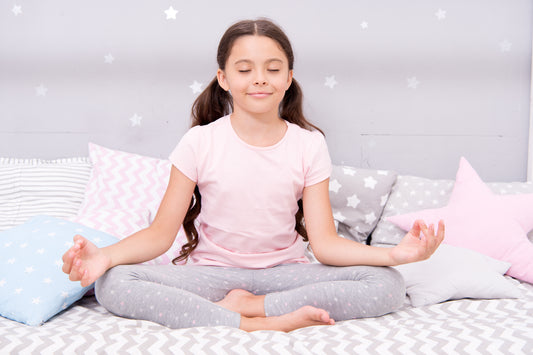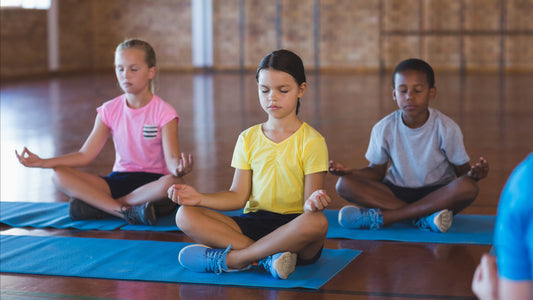Introducing Meditation to Young Minds
Children, as young as two years old, can begin to explore the practice of meditation. At this age, meditation can be introduced through simple breathing exercises and sensory-based techniques that engage their imaginations and foster a connection with their bodies.
Preschoolers: Laying the Foundation for Mindfulness
By the time children reach preschool age (3-5 years), their cognitive and emotional development allows for a deeper understanding of meditation. Guided visualizations, storytelling techniques, and interactive games can transform meditation into an enjoyable and engaging experience for preschoolers.
School-Aged Children: Cultivating Self-Regulation
As children enter school, their exposure to academic pressures and social interactions increases, often leading to stress and anxiety. Meditation, during these formative years, can equip children with the skills to manage their emotions, improve focus, and enhance self-regulation.
Teenagers: Navigating the Tumultuous Years
Adolescence brings a whirlwind of emotions, identity exploration, and social pressures. Meditation can provide teenagers with a safe haven to process their thoughts, cultivate self-acceptance, and develop resilience in the face of challenges.
Key Considerations for Introducing Meditation to Kids
- Age-Appropriateness: Adapt meditation techniques to suit the developmental stage of your child.
- Playful Approach: Make meditation fun and engaging to maintain interest and motivation.
- Consistency: Establish a regular meditation practice, even if it's just for a few minutes each day.
- Patient Guidance: Be patient and understanding as your child learns the art of mindfulness.
Benefits of Meditation for Kids
- Improved Emotional Regulation: Meditation helps children manage stress, anxiety, and anger effectively.
- Enhanced Focus and Attention: Meditation cultivates concentration and improves focus in daily activities.
- Increased Self-Awareness: Meditation promotes self-understanding and emotional literacy.
- Promotes Sleep Quality: Meditation can help children relax and fall asleep more easily.
- Boosts Self-Esteem: Meditation fosters self-acceptance and a positive self-image.
Resources for Parents
- To learn more about the practice of meditation for kids: www.meditatingkids.com
- To learn more about how meditation can help children of all ages with sleep and routine visit our blog
Conclusion
Meditation, when introduced at an appropriate age and practiced consistently, can offer a myriad of benefits for children, equipping them with valuable life skills and fostering emotional well-being. As parents, we can play a crucial role in nurturing a love for meditation in our children, empowering them to navigate life's challenges with greater resilience and inner peace.




